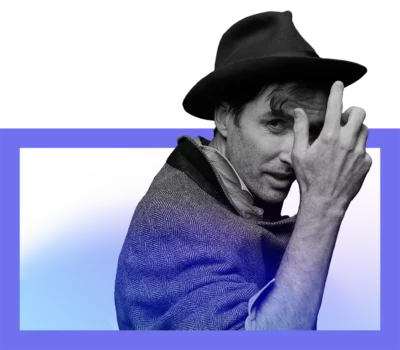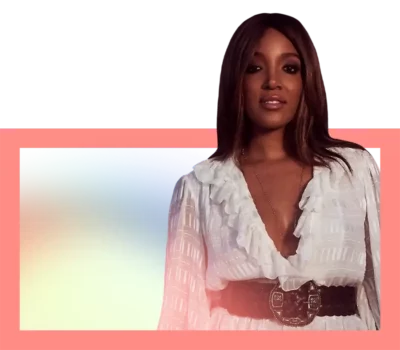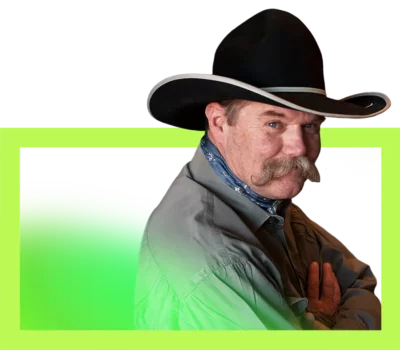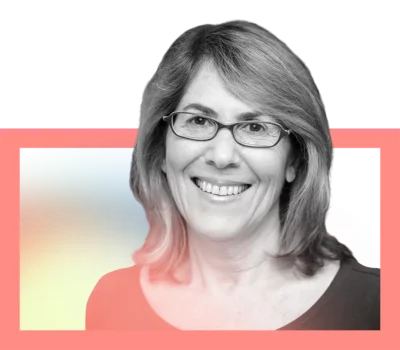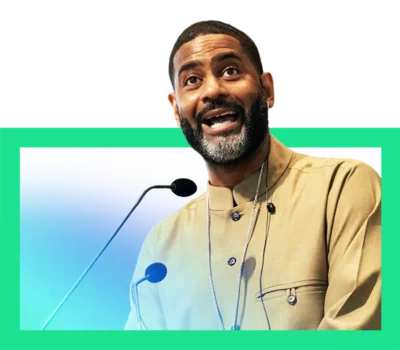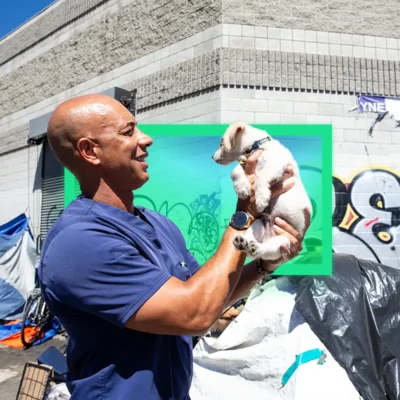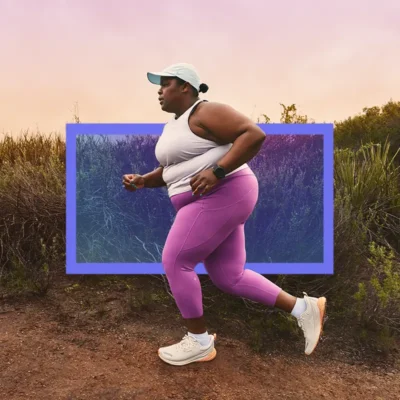Stories of new beginnings
As we transition into a new season, and look forward to a new year ahead, we’re sharing these five short stories of people in motion. Listen for stories of birth, creative rebirth, and stories of starting over. Because the human spirit can continually find a new way to begin again. Featuring stories from writer and midwife Elizabeth Lesser, cowboy poet Waddie Mitchell, country singer/songwriter Mickey Guyton, musician Andrew Bird, and the Reverend Otis Moss III.
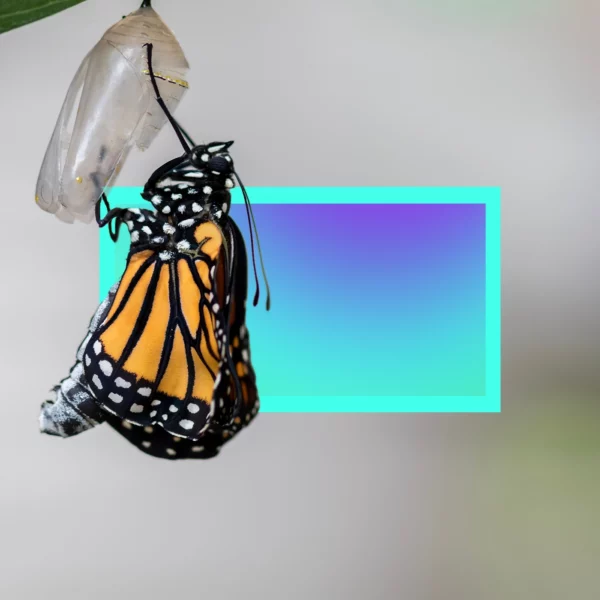
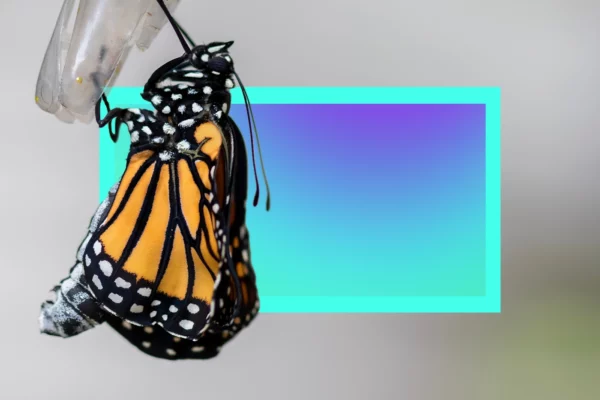
Transcript:
Stories of new beginnings
ROHAN GUNATILLAKE: Hello everyone. Rohan here, your host of Meditative Story. I’m really happy that we’ve put together this between-season bonus episode to look back at scenes from Meditative Story about new beginnings.
We’ve all been so heightened lately, and what I want you to know is that tough times are like weather patterns. Storms move through, sometimes terribly turbulent ones, but they move through.
The moment to start anew requires patience — a word we’ve heard a lot of lately — but I think you can see the brighter horizon ahead of us.
The signs are there, and I can see it.
If you have a friend or relative for whom you believe Meditative Story can provide much-needed refuge and restoration, please give them the gift of this show.
We don’t often directly ask our listeners to share Meditative Story, but at this time … in this moment … I hope you will consider sending a few people you know a link to this show.
Okay… Find a lovely place where you can close your eyes and be with these Meditative Storytellers for the next 30 minutes. You deserve this time. And it gives our team such deep satisfaction to have prepared this look back for you as we recognize that even these moments of tremendous uncertainty are moving past us and new beginnings are right ahead.
We start our look back with Meditative Story episode from Elizabeth Lesser. Elizabeth is an author and the co-founder of the Omega Institute, a center for holistic education in New York. Elizabeth is also a midwife and here she shares a story about the birthing process – what it means to sit with pain and difficulty, and how to birth something new into existence.
The body relaxed. The body breathing. Your senses open. Your mind open. Meeting the world.
ELIZABETH LESSER: The first time I witness a birth, I’m just a kid. It’s a cold, windy morning – springtime in Vermont. Snow still in the hills, maple syrup buckets hanging from the trees. I can see my breath in the air as I trudge down our dirt road with my father and three sisters.
It’s lambing season on our neighbor’s farm, and as we approach the muddy paddock, we hear a ewe, a mother sheep, bleating loudly. She’s in labor, and her lamb is stuck in the birth canal. We stand outside the fence, kicking at little patches of ice, watching the farmer trying to deliver the lamb. He digs his heels into the mud, reaches his arm up inside the ewe, and pulls hard. The ewe bleats even louder. Finally the lamb’s head appears. The farmer gives one more pull, and the little lamb slithers out and lands on a blanket of fresh hay. I am spellbound by the miracle before me.
A new life has arrived. Still wet from the birth, the lamb stands on shaky legs, looking out into the greening pasture. The mother licks the newborn clean, until its wool becomes fluffy and white. Just minutes before, the ewe was in pain, the baby in danger, but now all their effort is behind them. A warm, hopeful feeling fills me. I don’t know what to call it. It feels both other-worldly, and at the same time, wildly alive. It feels like love – love for the lamb and the ewe and the farmer; for every creature born into this world.
I know little about my own birth, something about a Catholic hospital where I am delivered by nuns who scold my mother for making “animal sounds” during labor. No one talks about being born – or dying – in my house. My mother goes off to the hospital and returns home a few days later with a new baby sister. My grandmother leaves in an ambulance and is gone forever. Where did she go? Where will I go when I die? And who was I, and each of my sisters, before we were born?
I want to talk about this, but there’s no one in my family who wants to ponder the big questions with me. My parents greet my existential angst with amused shrugs. My sisters call me the “weird one” because I tag along with my neighbors to church. I am looking for answers.
What I witness this morning at the birth of the lamb doesn’t answer those big questions, but that feeling of love, that sense of awe, it’s like a compass pointing me toward some kind of truth.
GUNATILLAKE: When Elizabeth’s experience in witnessing birth washes over me, I cannot help but think about how this moment has a real purity to it. I also think about our natural born instincts of hope and optimism for the life ahead. The world will heal, and new lives coming into the world today will thrive.
Our next Meditative Story retrospective is from Waddie Mitchell, a cowboy poet. Growing up on his father’s ranch in Nevada, Waddie learns that within the raw materials of his own life are the real rules for living that don’t get written down.
WADDIE MITCHELL: By the time I’m eight, I’m on a full schedule of chores. I feed the leppie pen calves out of a bucket. I get the milk cow in and milk her. I milk some for the barn cats and a little for the dogs, then take the house milk in and strain it through a filter into a gallon mayonnaise jar.
We let the cream rise overnight, and scoop it off the top in the morning, and put it and the milk in the creek to stay cool. We make our butter and ice cream with it. The only time we get to make ice cream though is in the wintertime, because that’s the only time we have ice for the churn.
When I turn 12, I get to sleep in the bunkhouse with the men as long as I’m quiet and don’t get in the way. I take that serious ’cause it’s a big deal for me to stay out there where I can listen.
The bunkhouse smells like cigarettes and pipes, cigars, and wood smoke. Talk is kept low, spare, no loud voices. It has to do with common courtesy, a rule without ever being written down or spoke of.
Each guy has a bunk, his bedroll, his warsack, and a couple of hooks above the bed to hang his clothes. The only real job in there was to clean the sink out when you got done washing in it, sweep around your bunk now and then. And to me, this is all important stuff, the little details that go along with the big things.
At night l lay on my bunk quiet, and I relish every minute that I get to listen to the buckaroos talk. One night, a guy named Curley Bill Johnson starts in to recite a poem out of nowhere. It’s about a cowboy that has a horse called Badger. They’d been together for a long time, had lots of adventures and, like happens, they got awful close. But the horse was getting old and not up for the rigors of the wagon works, so he decides to turn Badger out on good pasture for the season.
Now, there’s what you call a candy boy on a big outfit. His job is to bring out supplies and the mail to the wagon and other outlying camps and then take our letters back. Well the cowboy had been out with the wagon about two months, and hasn’t been in to see Badger. The candy boy comes out, unloads supplies, and just before he leaves, looks over and says, “Oh, yea, I forgot to tell you, your horse wire cut and died.” And then he just drives off.
When that candy boy turns back from his pickup window and tells him about his horse – just the cold indifference of him saying that with no compassion, my 12-year-old heart just breaks. A cowboy can love a horse. All of us in the bunkhouse know that.
I’ve got big old tears welling up in my eyes. I peek around, because I don’t want the buckaroos to see me crying. But nobody looks at anybody. There’s a few guys probably holding back tears themselves. I recognize then that poetry is part of being a cowboy, being able to do that. And from that day on, I start reading poetry in earnest.
GUNATILLAKE: Life changing moments can happen anywhere: on a ranch, at a stadium…
Singer-songwriter Mickey Guyton grows up in central Texas. Mickey first falls in love with country music at her grandmother’s house, listening to Dolly Parton. But it isn’t until one moment at a baseball game, listening to the national anthem that she sees what her life can become – she sees her future on a stage, creating for others the magical, transformative experience she’s witnessing. New beginnings can sneak up on us in unexpected ways, and from there, it’s our turn to cultivate them.
MICKEY GUYTON: On Sundays, I see a very different world than I do the rest of my week. My family attends an all Black Baptist church – a gospel church.
As I walk through the foyer into the hall, I notice the ocean blue carpet. I see the red pews with the wood backs and the stained glass windows along the walls. Suits for the gentleman and big hats for the ladies. The smell of old lady perfume is everywhere. The cheap fragrance mixes with the smell of fresh hair, sprayed, burnt, done up.
I sit near the front, sweating in my floral dress, scratching the coarse fabric of the Hanes pantyhose I hate – but am forced – to wear.
When the message is delivered by the preacher at the pulpit, women run up and down the aisles, hollering and raising their hands, praising the Lord and passing out. “Catching the spirit,” they say. I think: “I don’t want that spirit to catch me.”
I glance back at the balcony, away from the commotion, where I really want to sit. Far away from the spirit. But my parents forbid it: sitting all the way up there, you aren’t close enough to God, to the message.
Church is where I learn to sing, how to harmonize. My church choir teacher instructs us to listen, to hear what people are actually singing – that’s how we’ll find the harmony. Don’t over-sing, don’t outshine, just complement.
Because I spend the week surrounded by white kids, I notice that I speak differently than the Black folks at my church. They love me, don’t get me wrong. But I get plenty of “You sound like a white girl.” And I’m thinking “What does that even mean?”
On Sundays, I wonder if I’m Black enough.
My whole life changes on a trip to a Texas Rangers game – before the players even take the field, before the game even begins. I sit in the nosebleeds with other folks from my gospel church. I look down. The infield is perfectly smooth, its red clay brilliant against the bright green grass.
The announcer says, “And now, our national anthem, sung by 10-year-old LeAnn Rimes.” The jumbo screen shows a little girl with blonde curly hair, in a blue denim outfit, with an American flag bedazzled on her back.
When LeAnn opens her mouth to sing it’s like a grown woman soars from the depths of her little body. Her voice – that big voice – enraptures the stadium. Everybody hangs on every last word. I’ve got chills all over my body, just watching her, just hearing that voice.
In that instant, I know: I want to sing country music. I want to stand exactly where she is.
The crowd barely waits for her to finish, they erupt in cheers and applause. I’m enamored with her, but I am also, like, “I can do that.” I’m not jealous, I feel competitive. I can do that.
I absolutely want that feeling. That whole ride back I try to sing the national anthem but don’t know the words, so I make them up. I can’t stop thinking about that voice. The crowd. The applause. The performance.
GUNATILLAKE: We’re hearing next from another unbelievable musician – indie rock multi-instrumentalist, singer, and songwriter Andrew Bird. In Andrew’s Meditative Story, he takes us back to a time when he trades his life in Chicago for a countryside barn. Feeling adrift and struggling to find his sound, Andrew carves out a quieter space for himself – and it’s there that he hears the beginnings of the music he’s meant to make.
ANDREW BIRD: It’s spring now. I’m on the farm for two or three weeks at a time, not speaking to anyone. I get up in the morning, get eggs from the chickens and fresh asparagus from the garden and make an omelet and a pot of coffee. I start making loops in the morning and the next thing I know, the sun is going down. I am so deeply, deeply in it.
While I’m fixing a snack, I’ll keep the loop playing. And I start experimenting with ways my voice might couch itself inside of the loops. I step outside the barn and still hear the music come through my old Fender Twin amp, blowing out through the windows. Fifty, sixty yards outside the barn, I can still hear the music all around me. As I turn the corner to the barnyard there are two old empty silos that I sometimes play and whistle in. They have this extraordinary reverb. I start to notice that what’s coming in through my eyes affects what I hear. And then how what I hear affects what I see. And this has a profound effect on the music I’m making.
Anyone who spends that much time alone is going to start to battle with inner demons. These are some long days and weeks to be wrestling with my work. Not speaking with anyone for long expanses of time, I am kind of losing my mind a little bit. I ask myself, “What made me leave my community to spend so much time alone? Is this a natural human impulse?” In certain cultures it’s a fate worse than death to be ostracized, yet it’s my choice. I pursue it, I embrace it.
There’s something I access in myself away from the noise of my day-to-day ambitions. Discovering these amorphous, gaseous-state loops, I stumble into what feels like the weather system rolling through the valley.
I remain on the farm for about three years. I am not really aware of an audience when I write. There isn’t any purpose to what I am doing. But I know it is profoundly important for the music I am making, the atmospheres I am creating, and the textures. Before this, my songs took a lot of twists and turns and had all sorts of stylistic mashups. Now I feel like I can write a song that has only two chords in it, or even just two notes in it, and have it be compelling.
Looping is by nature repetitive. Meditative. Repetition has always been my biggest complaint against pop music. Why do they keep driving home that chorus? But the loops force me to embrace repetition. To see it as a virtue. To be more spare and minimal.
GUNATILLAKE: And finally one more Mediative Story where music is the backdrop to a new beginning. Pastor Otis Moss III, Senior Pastor of Chicago’s iconic Trinity United Church has spent the last two decades practicing and preaching a Black theology that unapologetically calls attention to the problems of systemic racism in America. Pastor Moss articulates a spirituality that has been weaving its way through American history – and in particular, American jazz – about disparate and diverse people who are not supposed to make beautiful music together, but who do. Perhaps the only way to go beyond the challenges of this cultural moment is to move through them, and I hope this final scene provides some reassurance that our differences unite us.
REV. DR. OTIS MOSS: I believe America will only be saved by a jazz narrative. I truly believe that. Jazz tells us we have the right to our own particular cultural framework. Jazz tells us we can all play solos. That everybody has the right to play in the band. That saxophones can play with pianos and pianos with trap drum sets and no, you don’t need a bow to play bass. In a jazz narrative, combinations that may not appear to work on the surface will converge in beautiful, unexpected ways.
I receive a note from Perth, Australia, where 10,000 young people are shouting “Black Lives Matter.” That chant is being led by aboriginals from Australia. Someone sends me another picture in Syria of a graffiti artist who put George Floyd’s picture on the side of a bombed out building, under which it says, “Say no to racism.” Right now we’re witnessing the largest multi-racial gathering of people ever to take place. And not just here in the United States – people across the globe are recognizing black anguish.
I step out onto the streets in Bronzeville, a traditional African-American community in Chicago. The neighborhood is embodied by a bronze statue of a man holding a suitcase, symbolic of the Great Migration after the civil war, where people of African descent left the South to find a better life for what one writer calls “the warmth of other suns.”
We march down to 51st Street to Hyde Park, near the University of Chicago. I’m on one side of the street, marching with folks from my church. The street has two thoroughfares, one going north, the other south. There is a median with plants running in-between, which makes getting to the other side challenging.
I look out to the opposite side of the street, I see black people gathering prepared to lead the march. But behind them I see all these young white kids with skateboards and bikes. I see families. I see children with masks holding signs that say “white silence is destructive.” This march is led by people of African descent, but the majority of people here on this day are not people of color. And it is incredibly ecumenical: Baptist, Jewish, Buddhist, the Baha’i, Hindu. Latino, Methodist, Pentecostal, and Muslim. The Sikh and the sanctified, the queer and the Quaker. Even Wiccans and the non-believers have joined the march. And we all desire what? What is the beat that we can all nod our heads to?
These protesters have been nurtured in a culture where pop music is the music that comes out of a continuum. It’s deeply connected to black religiosity, African culture, and African traditions, even more so than the music of Motown that was cleaned up in order for white audiences to be able to listen. Out on our streets we have people nodding their head to Kendrick Lamar. They’re saying “we goin’ be alright”. A whole generation of people are using this as an anthem.
During the Civil Rights Movement there was no multi-racial gathering like this. You had a small minority of people who said, “Hey, we’re going to go down there because we have to make this nation better.” But most people were saying, “Let’s just leave things the way they are.” But now it’s here. And the people shouting are young people. They have a jazz framework.
And I remember that evening I told my wife with a big smile, I said it loudly, I said “Now, this is jazz.” The ethic, the spirituality that has been weaving its way through our history, trying to breathe in America. The American jazz narrative of a people who are incredibly different and not supposed to play together, but who do. And who make such
beautiful music. This right here – yes, this – this is America’s jam session.
GUNATILLAKE: Thank you Pastor Moss, Andrew, Mickey, Waddie, and Elizabeth … and you.
Season 3 is coming in a few short weeks. If you know of anyone who will benefit from the Meditative Story podcast, please take the next few moments to share the link with them. Each episode involves weeks of handcrafting, and our greatest joy comes from reaching more people who really need this content right now. So thank you for sharing this with the people you care about. We’ll see you very soon!

